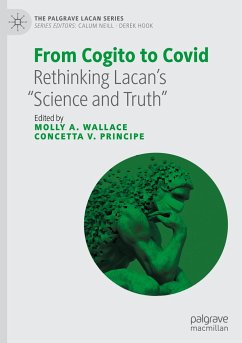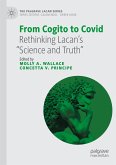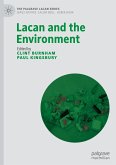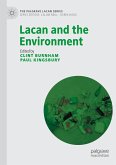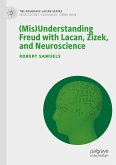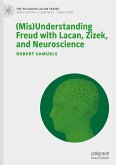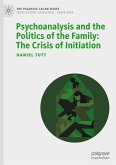This edited collection examines the contemporary relevance of Lacan's 1965 essay "Science and Truth" to debates on science, psychoanalysis, ethics and truth. In doing so, it re-considers the established understanding of its argument that psychoanalysis is the only science for the human subject.
Over fifty years after Lacan attempted to formalize the relationship between science and psychoanalysis in "Science and Truth," this volume returns to the categorically systematic yet deeply puzzling ideas of this lecture-turned-essay. The volume begins with a rigorous analysis of the formal logic animating the cogito, which serves as a foundation for the remainder of the book to force a confrontation between the themes laid out in "Science and Truth" and the cultural, intellectual, political, economic, and, of course, scientific movements that we face today. The following five chapters examine various contemporary phenomena, including the destabilizing forces of post-truthism and political nihilism, the 'non-science' of filmic depictions of science, the prosopopeia of Lacan's so-called secular Name of the Father, the pseudoscientific discourse of involuntary celibates, or 'incels,' and, finally, the alliance between science and capitalism that has developed out of the Covid-19 pandemic.
This project offers an important contribution to contemporary debates about science and ethics that will be of interest to academics working in psychoanalytic and critical theory, and the philosophy and history of science; as well as to clinicians.
Over fifty years after Lacan attempted to formalize the relationship between science and psychoanalysis in "Science and Truth," this volume returns to the categorically systematic yet deeply puzzling ideas of this lecture-turned-essay. The volume begins with a rigorous analysis of the formal logic animating the cogito, which serves as a foundation for the remainder of the book to force a confrontation between the themes laid out in "Science and Truth" and the cultural, intellectual, political, economic, and, of course, scientific movements that we face today. The following five chapters examine various contemporary phenomena, including the destabilizing forces of post-truthism and political nihilism, the 'non-science' of filmic depictions of science, the prosopopeia of Lacan's so-called secular Name of the Father, the pseudoscientific discourse of involuntary celibates, or 'incels,' and, finally, the alliance between science and capitalism that has developed out of the Covid-19 pandemic.
This project offers an important contribution to contemporary debates about science and ethics that will be of interest to academics working in psychoanalytic and critical theory, and the philosophy and history of science; as well as to clinicians.

